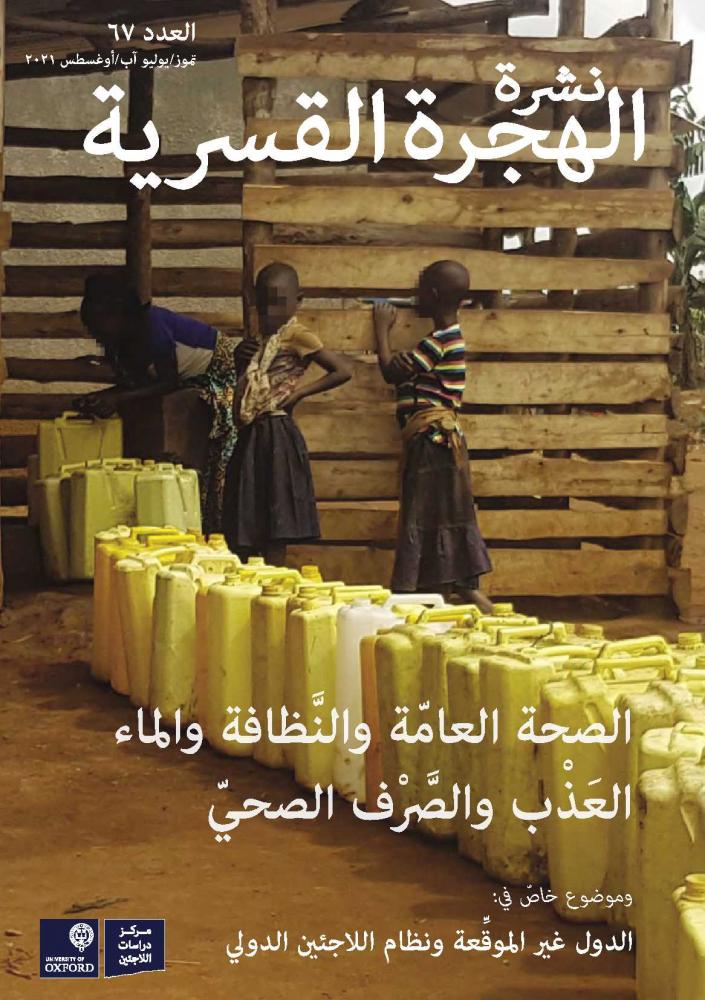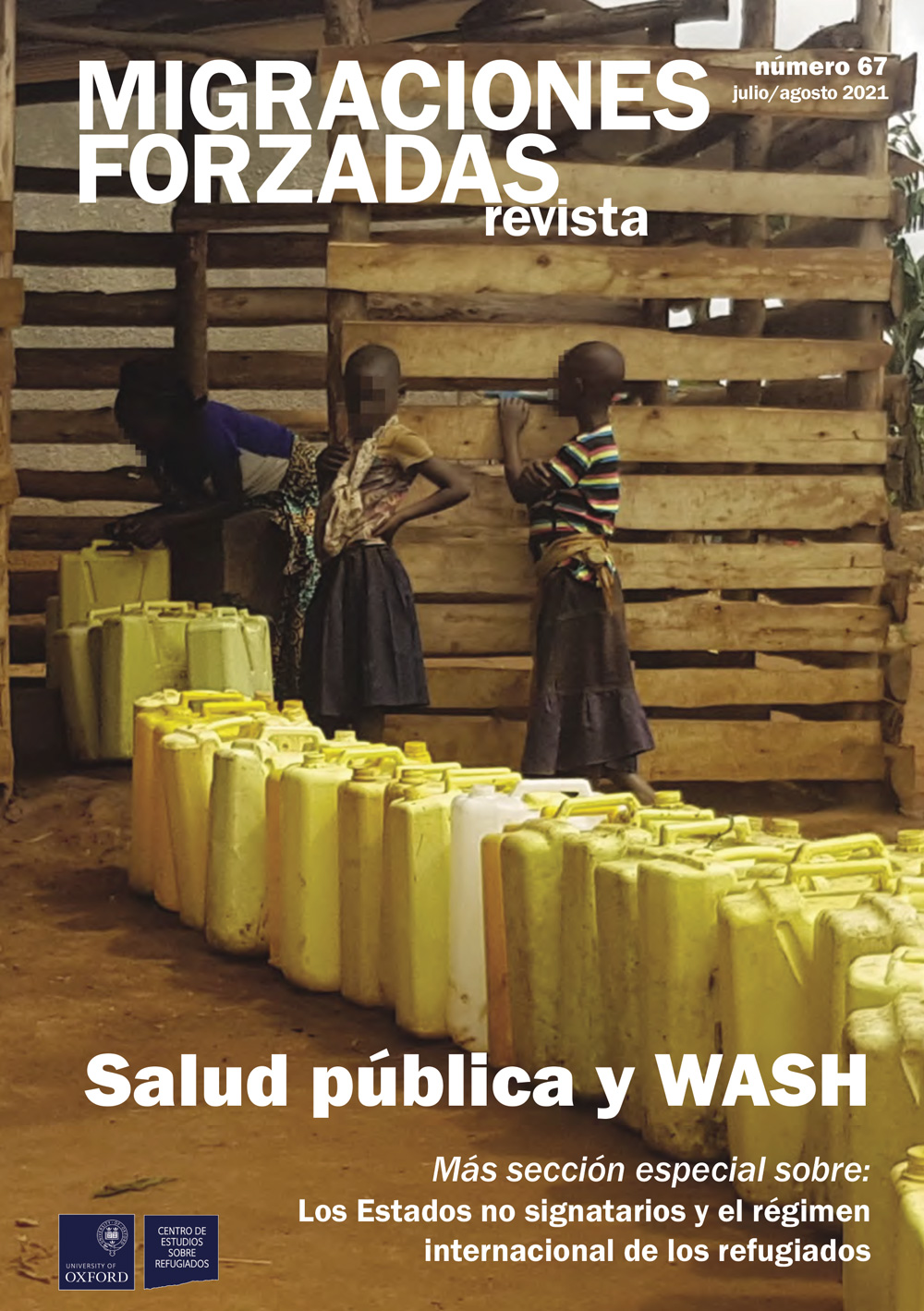De la editoras
La salud pública y el WASH (agua, saneamiento e higiene) rara vez han estado tan en boga como desde que comenzara la pandemia mundial de la COVID-19 a finales de 2019, lo que hace especialmente oportuna nuestra sección principal. Aunque…
From the editors
Public health and WASH (water, sanitation and hygiene) have rarely been as much in the spotlight as they have been since the global COVID-19 pandemic began in late 2019, making our main feature particularly timely. Although a number of articles…
Le mot de la rédaction
La santé publique et WASH (eau, assainissement et hygiène) ont rarement été autant sous le feu des projecteurs que depuis le début de la pandémie mondiale de COVID-19 fin 2019, ce qui rend notre dossier principal particulièrement opportun. Bien qu'un…
Los Estados no signatarios y el régimen internacional de los refugiados
La Convención de 1951 sobre el Estatuto de los Refugiados y su Protocolo de 1967 constituyen la base del régimen internacional de los refugiados, es decir, las normas jurídicas y las instituciones de apoyo que se centran en su protección.…
Romper el hermetismo: integrar el WASH en la respuesta a las crisis planteadas por los desplazamientos
Las poblaciones desplazadas forzosas se ven constantemente expuestas a riesgos y amenazas para la salud pública cuando dejan atrás sus redes sociales, medios de vida, proveedores de servicios e infraestructuras. Las personas desplazadas suelen ver debilitada su salud durante el…
ترقية حقوق اللاجئين في الدول غير الموقِّعة: دور المجتمع المدني في تايلند
لم تعطِ تايلند اللاجئين قطّ بصراحةٍ حقّاً قانونياً في الإقامة فيها، مع أنها تُضِيفُ اللاجئين منذ عقود من السنين. وقد أُجِيزَ للاجئين الذين قَدِمُوا تايلند بأعداد كثيرة من البلدان المجاورة –كاللاجئين الفيتناميّين والكمبوديّين في السبعينيات، أو اللاجئين البورميِّين أو الميانماريِّين…



